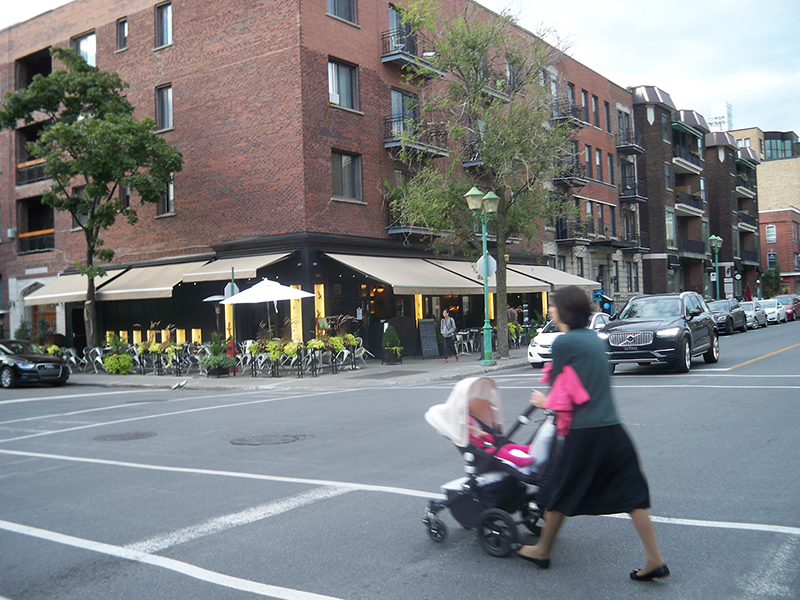As of July 1, Jewish students and public-sector employees in Quebec may find that they have to go through new formalities if they want to observe some religious practices.
Jews, for example, will have to jump through additional hoops if they want an exemption to observe a religious holiday. The same would also appear to be true for Jewish citizens wishing, say, to receive kosher food at a public institution, or be treated by a doctor of the same gender.
Canada Day is when the guidelines for how public bodies should deal with requests for accommodation on religious grounds come into effect. The guidelines, which were published in May, follow on the passage of the contentious Bill 62 last October, which is designed to foster adherence to state religious neutrality. Its most controversial element – that those delivering or receiving public services must do so with their faces uncovered – was suspended until a court challenge is heard.
Lawyer Frank Schlesinger, who chairs the Lord Reading Law Society’s human rights committee, thinks the guidelines, much like the bill itself, are “a solution in search of a problem.”
READ: QUEBEC’S BILL 62 VIOLATES KEY RIGHTS: JEWISH LAWYERS GROUP
Schlesinger says that, by and large, the public sector has been successfully handling accommodation requests for many years.
Moreover, the principle of reasonable accommodation has been confirmed in numerous court decisions, including at the Supreme Court level, he points out.
In its brief to the hearings on Bill 62 in 2016, the society said that creating a new layer of bureaucracy is “a futile exercise and superfluous.”
What concerns Schlesinger most is that the guidelines “put the burden on the individual,” while some appointed “czar” of accommodation within a public body will have the power to veto the individual’s request, with no apparent recourse. Much of the wording is also vague and too open to interpretation, he thinks.

Jewish students in public schools and Jewish public-sector employees will be put in the “humiliating and tiresome position of having to apply for accommodations and proving that the request is justified,” says Schlesinger.
“There are no blanket accommodations. The accommodation would have to be sought for each occasion that it is needed.”
Quebec Justice Minister Stéphanie Vallée stressed that the aim is to help public institutions make decisions on accommodation requests. Each request must be dealt with on a case-by-case basis. However, all of them have to meet certain criteria. The request must be:
- based on a belief that it’s within one’s religious rights, as guaranteed by Sec. 10 of the province’s Charter of Human Rights and Freedoms;
- “serious, in other words, based on a sincere belief in the need to comply with a practice that is part of the applicant’s faith or religious belief”;
- consistent with the right to equality of women and men and the protection against discrimination, as defined by the charter;
- consistent with “the principle of state religious neutrality”;
- “reasonable, in that it does not impose undue hardship with regard to, among other considerations, the rights of others, public health and safety, the proper operation of the body and the costs involved”; and
- made by a person who has “co-operated in seeking a solution that meets the criterion of reasonableness.” This might include “making concessions in order to reduce the hardship that might be caused” by the accommodation.
There are no blanket accommodations. The accommodation would have to be sought for each occasion that it is needed.
– Frank Schlesinger
Every public body has to appoint a person who will “exercise the highest administrative authority,” in dealing with requests. The act specifies that that person, in turn, must designate an “accommodation officer.” Among his tasks will be to assess the sincerity of the beliefs of the person making the request.
“Accommodation ensures respect for fundamental individual rights and prevents situations of discrimination. The objective is not to grant a privilege or preferential treatment to certain individuals, but to ensure that they enjoy genuine equality,” says Vallée.
“Each request must be dealt with on its merits and compared to the conditions set out in the act. The publication of these guidelines will provide public bodies with guidance on how to make objective, enlightened decisions that respect the fundamental rights of each person concerned.”
In a backgrounder provided by the Ministry of Justice, it lists examples of accommodation requests, such as meeting dietary needs, gaining access to a prayer space, allowing a woman to receive a public service with with her face covered and taking time off for a religious holiday.
Accommodation ensures respect for fundamental individual rights and prevents situations of discrimination.
– Justice Minister Stéphanie Vallée
In addition to government departments and state institutions, public school boards, health agencies and social service agencies, the guidelines also apply to municipalities, subsidized child care centres, as well as private schools, colleges and universities that receive public funding.
Schlesinger finds the discretion afforded to accommodation officers in determining sincerity of belief troubling. “What if it’s said that a practice is more cultural than religious?” he asks. He also wonders how far applicants may be expected to “co-operate” in finding some alternative.
There’s ambiguity in other parts of the law, as well, he said. “If a school board has to hire extra invigilators at a cost of $2,000 because 10 Jews in a school are writing an exam on another day, is that undue hardship?”
The guidelines mention no appeal process, he adds. “Is there a higher body? Do we go to the courts?
“These decisions often have to be made quickly. There’s no time to go to court if, say, an exam is next week.”
